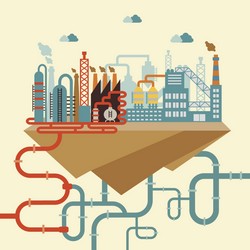Reactor membranes for added value chemicals
Short-chain alkanes with up to four carbons and CO2 found in natural gas, coal and biomass could replace the long-chain hydrocarbons from oil as feedstock for other chemicals. However, they are very stable and unreactive molecules, difficult to convert into added value products. Scientists initiated the CARENA(opens in new window) (Catalytic membrane reactors based on new materials for C1-C4 valorization) project to alleviate the chemical industry's dependence on crude oil. Partners developed membranes and catalysts to convert alternative feedstock into chemicals for energy applications and products such as solvents, adhesives and protective coatings. CARENA focused on activating three primary feedstocks: methane, propane and CO2. Methane is currently the industry standard feedstock for producing hydrogen and base chemicals such as methanol and ammonia. The team followed a direct route for converting methane into methanol. Oxygen-conducting membranes were used extensively on several scales to verify the oxygen flux, which is critical for developing a reactor for oxidative coupling of methane. Conventionally, propane is converted to acrylic acid in two steps with purified propylene as an intermediate. CARENA developed a novel process involving oxidative dehydrogenation of propane and subsequent selective oxidation of propylene in a propane/propylene mixture to acrylic acid. Experimental results indicated that coking is very likely under propane dehydrogenation conditions using palladium membranes. Researchers investigated the use of selective membranes based on metal organic frameworks to reduce coking at high temperatures. The team investigated two routes that could greatly enhance reuse of CO2 in the chemical industry: direct conversion of CO2 into dimethyl carbonate and into methanol. The use of membrane reactors is highly necessary as both reactions are strongly limited by equilibrium conversion. A novel catalyst to speed the conversion has an operating temperature overlapping that of the new membranes. Catalytic membrane reactor technology developed within the context of the CARENA project will provide important relief to the chemical industry, which until now has been reliant on crude oil for feedstock to synthesise numerous products. Overcoming the challenge associated with converting short-chain hydrocarbons from natural gas and other sources into useful precursors will enable independence for EU chemical production.



